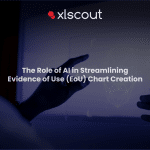
Large language models have revolutionized many aspects of our lives in recent years, from improving search engine capabilities to enhancing idea generation. However, as we realize the potential of these language models, we must address the ethical issues that arise from their use. While they present exciting opportunities, they also raise concerns about bias, privacy, and intellectual property. This blog delves into the ethical implications of using large language models for idea generation as well as ways to strike a balance between innovation and responsibility.
Introduction to Large Language Models
Large language models (LLMs) are a significant advancement in natural language processing and artificial intelligence. By learning from massive amounts of data, these models are designed to understand and generate human-like text. Large language models, with billions of parameters and the ability to process and comprehend complex language structures, have the potential to transform a variety of domains, including idea generation, content creation, customer service, and more.
Large language models are distinguished by their ability to generate text that closely resembles human speech patterns. This trait enables them to provide responses that are not only grammatically correct but also convey nuances, emotions, and context. Large language models are invaluable tools for a variety of creative and information-driven tasks due to their human-like fluency and versatility.
However, it is critical to acknowledge that the development and deployment of large language models raise ethical concerns. As these models gain power, they have the potential to spread misinformation, perpetuate biases, and violate privacy rights. These ethical considerations emphasize the importance of responsible use and necessitate the development of guidelines and frameworks to address these issues.
The Power and Potential of Large Language Models
Large language models have incredible power and potential, opening up new frontiers in artificial intelligence and natural language processing. These models are trained on massive amounts of data ranging from books and articles to internet text, allowing them to gain a thorough understanding of language and its complexities. As a result, the tool can generate human-like text, engage in conversations, answer questions, and even create original works.
The adaptability of large language models is one of their most remarkable features. They are adaptable to a variety of domains and tasks, making them extremely useful across industries. For example, in the field of content creation, these models can generate blog posts, news articles, and marketing copy, saving content creators time and effort. Large language models in customer service can provide personalized responses and assistance, improving user experiences and reducing the need for human intervention. They can also help researchers with research and data analysis by quickly extracting relevant information from large amounts of text, allowing them to make significant progress in their work.
Ethical Concerns Surrounding Large Language Models
While large language models have shown remarkable capabilities, they also raise a number of ethical concerns that must be addressed carefully. Understanding and addressing these ethical concerns is critical for ensuring the responsible development and use of large language models.
1. Bias
One major ethical concern is the possibility of bias in the output of these models. Language models learn from massive amounts of data, which can reflect and perpetuate societal biases in the training data. This can take the form of biased language, stereotypes, or unequal representation across demographic groups. To ensure fairness and inclusivity in the generated content, such biases must be actively mitigated and minimized.
2. Privacy
When working with large language models, privacy is an important ethical consideration. For training, these models require large amounts of data, which can include personal information. Large language models must be used responsibly, which necessitates strict adherence to privacy regulations and the implementation of robust data protection measures. To ensure that privacy is maintained throughout the development and deployment of these models, users’ consent and control over their data should be respected.
3. Intellectual Property
Intellectual property and plagiarism are also ethical concerns. Language models can generate text that closely resembles existing works, raising concerns about the content’s originality and ownership. It is critical to develop guidelines and practices that uphold copyright laws and intellectual property rights while also acknowledging the potential challenges posed by the use of large language models.
To address these ethical concerns, researchers, developers, policymakers, and other stakeholders must work together. To ensure transparency, accountability, and responsible practices in the development and use of large language models, ethical guidelines, industry standards, and regulatory frameworks should be established. We can harness the potential of these models while avoiding unintended consequences and upholding ethical principles in their implementation by actively engaging in ethical discourse and fostering a culture of responsible innovation.
Protecting Intellectual Property and Avoiding Plagiarism
When using large language models for idea generation, it is critical to protect intellectual property and avoid plagiarism. These models have the potential to generate text that is strikingly similar to previously published works, raising concerns about originality and copyright infringement. Organizations can ensure responsible use of these models while respecting the rights of content creators by implementing measures to protect intellectual property and uphold ethical standards.
1. Adhering to Copyright Laws and Regulations
Adherence to copyright laws and regulations is an important aspect of intellectual property protection. Organizations should ensure that the use of large language models does not violate copyright restrictions by directly copying or plagiarizing existing works. It is critical to understand and respect the rights of content creators, such as authors, artists, and other creators, and to refrain from infringing on their intellectual property.
2. Establishing Guidelines and Policies
Organizations should establish clear guidelines and policies for idea generation using large language models to avoid plagiarism. These guidelines should emphasize the importance of creating original content and provide instructions on how to cite and attribute external sources appropriately when necessary. Organizations can reduce the risk of inadvertently plagiarizing content by fostering a culture of originality and proper attribution.
3. Collaboration with Legal Professionals
Collaboration with legal professionals can also be beneficial in ensuring that intellectual property laws are followed. Legal counsel can advise organizations on copyright considerations, fair use, and licensing options, assisting them in navigating the complexities of intellectual property protection and use. Consulting with legal counsel can provide insights into best practices while also ensuring that the organization’s approach is in accordance with legal requirements and industry standards.
Ethical Guidelines and Best Practices for Idea Generation with Large Language Models
Ethical guidelines and best practices are critical in guiding the responsible and ethical application of large language models in idea generation. Organizations can ensure that the deployment of these models adheres to ethical principles, respects user rights, and maximizes societal benefits by following these guidelines. Consider the following key ethical guidelines and best practices:
1. Prioritize Transparency
Be open about your use of large language models for idea generation. Inform users and stakeholders about the nature, capabilities, and limitations of the models. To enable informed decision-making, provide information about data sources, model training processes, and potential biases.
2. Respect Privacy and Data Protection
Implement strong privacy safeguards to safeguard user data throughout the idea-generation process. Obtain informed consent from users and follow privacy laws. Reduce data collection, use data anonymization techniques, and implement secure data storage practices to protect privacy and sensitive information.
3. Mitigate Bias and Ensure Fairness
Work actively to identify and mitigate biases in large language model output. To avoid perpetuating stereotypes and unequal representations, train models on diverse and representative datasets. Regularly audit and evaluate the models’ output to address potential biases and promote fairness in the generated content.
4. Promote Originality and Avoid Plagiarism
Provide clear guidelines on proper citation and attribution practices and emphasize the importance of creating original content. To avoid unintentional violations, educate users about intellectual property rights and plagiarism. Integrate plagiarism and similarity detection checks into the idea generation process to identify and correct potential instances of plagiarism.
5. Ensure Accountability
Accept accountability for the content produced by large language models. Address errors, biases, and ethical concerns as soon as possible and in a transparent manner. To improve accountability, create mechanisms for user feedback, and involve stakeholders in the process. Conduct regular audits and reviews in order to identify and correct any ethical or legal issues.
Organizations can foster responsible innovation, mitigate potential risks, and maximize the benefits of large language models in idea generation by adhering to these ethical guidelines and best practices. This dedication to ethics and responsible practices fosters trust among users, stakeholders, and the general public, ultimately contributing to the powerful tools’ long-term positive impact.
Conclusion: Striking the Balance between Innovation and Responsibility
In conclusion, striking the balance between innovation and responsibility is crucial when utilizing large language models in idea generation. These models possess enormous power and potential, but with that power comes the responsibility to ensure their ethical use and address potential risks. Organizations can navigate the complex landscape of idea generation while upholding values such as transparency, privacy, accountability, and fairness by considering the ethical considerations discussed throughout this blog.
Responsible use of LLMs necessitates a proactive approach that prioritizes transparency in model development, data usage, and technological limitations. Organizations should create clear guidelines and policies that incorporate best practices for protecting privacy, intellectual property rights, and avoiding plagiarism. Regular audits, user feedback, and continuous improvement processes are required to address biases, errors, and ethical concerns that may arise during the idea generation process.
Ultimately, the responsible use of large language models is about maximizing the benefits while minimizing the potential harms. Ethical considerations should be integrated throughout the idea generation process, from model development to content evaluation. This comprehensive approach builds trust, encourages accountability, and ensures that society benefits from the potential of large language models.
Organizations can navigate the ethical complexities of large language models by embracing transparency, privacy protection, fairness, and accountability. Striking a balance between innovation and responsibility is a continuous commitment that necessitates continuous evaluation, learning, and improvement. Organizations can harness the power of large language models to drive innovation while upholding ethical standards and societal values for a more inclusive and responsible future by using them responsibly.







